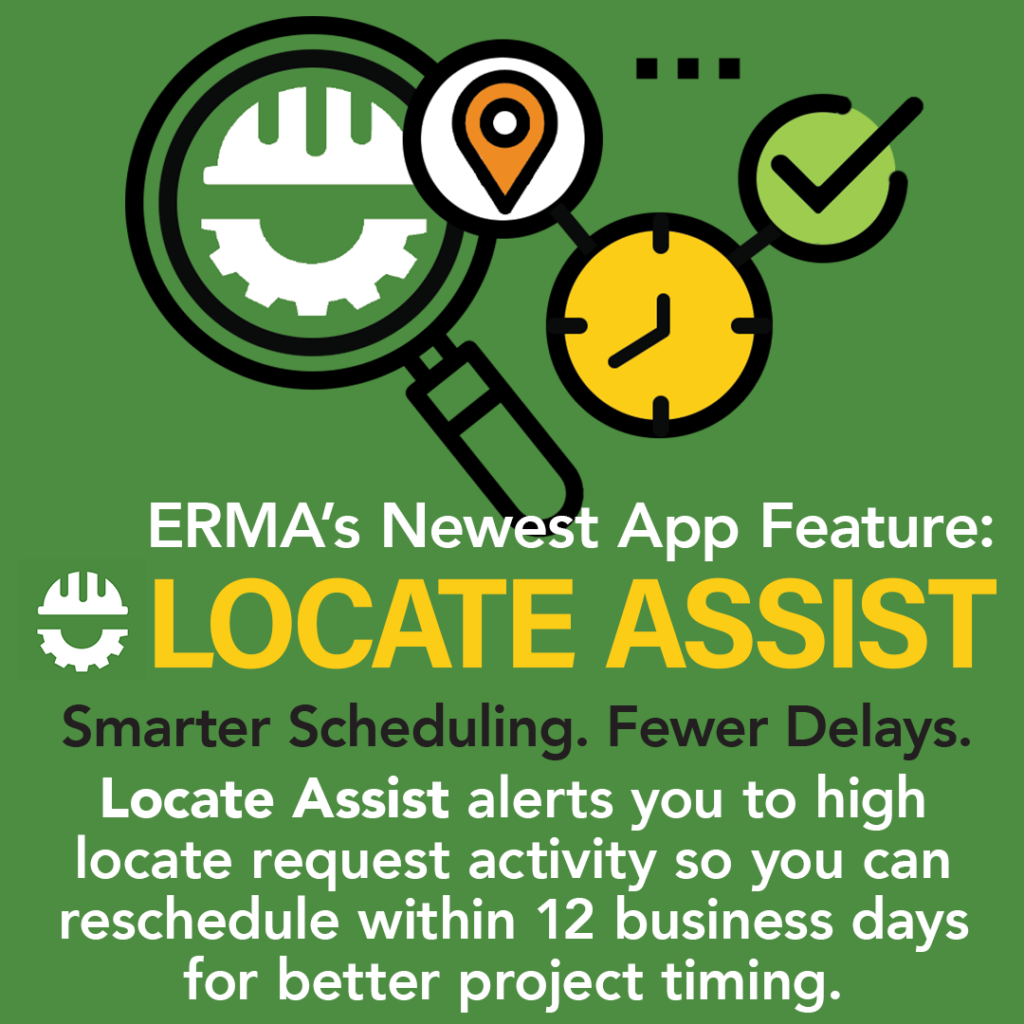
IMPORTANT NOTICE:
The ERMA app has been retired, as its Code 60 management and Locate Assist functionality is now fully integrated into the Exactix platform. While ERMA was a separate downloadable app, Exactix is fully web-based and responsive—offering the same mobile-friendly experience without needing to install anything. You can easily access and use Exactix from your phone, tablet, or desktop.

NOW AVAILABLE!
LOCATE ASSIST
Virginia 811’s Locate Assist helps excavators reduce potential delays by analyzing locate request volume in their area. If there’s a high volume of locate requests in an area, the system alerts the excavator, allowing them to adjust their schedule. Excavators can then choose an alternative excavation date—within the next 12 business days—with lower locate request activity. While not a guarantee, this feature enhances planning and improves overall project efficiency.
LOCATE ASSIST FREQUENTLY ASKED QUESTIONS
Locate Assist is a predictive system developed by Virginia 811 in partnership with Skapa Tech, the development company that helped build ERMA. It is designed to alert excavators when locate requests are at risk of not being completed on time, providing an opportunity for rescheduling under specific conditions to improve coordination and efficiency.
Yes, test studies—also known as feasibility studies, which assess whether a proposed solution is practical and likely to succeed—have been conducted.
In this case, the study examined whether existing data could accurately predict late locate requests, with the goal of improving service reliability and communication between excavators and locators. The results of the study provide insight into how we can enhance efficiency, reduce delays, and create a smoother process for everyone involved.
The study model demonstrated a 90% accuracy in predicting when locate requests would be late.
- It predicted late locate requests correctly about 60% of the time, but there’s still room to improve.
- Including expected response numbers—such as the total number of tickets submitted for a given area and the anticipated late responses—has improved the accuracy of predictions for locate requests.
- Further refinement of feature extraction techniques is needed to enhance the model’s performance.
- Feature extraction techniques refer to the methods used to identify and extract important information (called “features”) from raw data. These features help a model or system make better predictions or decisions. In simpler terms, it’s about finding the right pieces of information that are most useful for the model to understand and make sense of the data. For example, if you’re predicting delays in completing locate requests, features could include the time of day the locate request was created, the type of task, or how long it usually takes to respond.
The model gives two types of results (or outputs):
Late or On-Time: It tells you if a ticket will be “Late” or “On-Time.”
Confidence Percentage: It gives a probability score showing how likely the locate request is to be late.
- Better Data Analysis: Improving how we analyze text and context to get more useful information.
- Using More Data: Adding more data about how things are working (operational data) and how people are behaving (behavioral data).
- Making Predictions More Accurate: Adjusting the thresholds to balance between catching all late locate requests and avoiding false alarms.